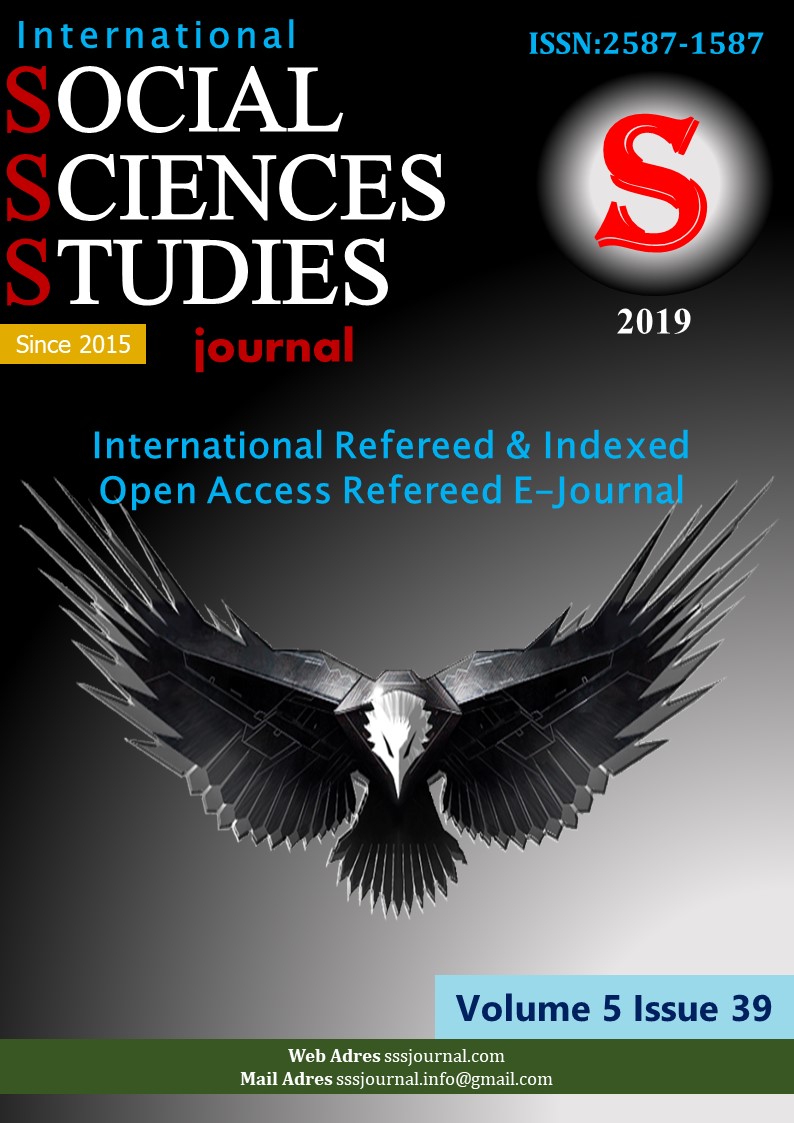Teknolojik Gelişmelerin Muhasebe Mesleğine Etkileri: Muhasebe Meslek Mensuplarına Yönelik Bir Uygulama
Author :
Abstract
Bu çalışmada, iktisadi faaliyetler sonucunda günlük hayatın ihtiyacı olarak doğan muhasebe mesleğinin teknolojik gelişmelere bağlı olarak gerçekleşen değişikliklerin etkisi üzerinde durulmaktadır. Teknolojik gelişmelerin muhasebe mesleğine olan etkileri tarihsel sıraya göre anlatılmıştır. Çalışmanın birinci bölümünde muhasebe mesleği tanımlanarak, Muhasebenin kavramları, fonksiyonları, muhasebede kullanılan belgeler ve muhasebe süreci açıklanmaya çalışılmıştır. Çalışmanın ikinci bölümünde muhasebe mesleği unvanları üzerinde durularak Dünya’da ve Türkiye de muhasebe mesleğinin tarihi üzerinde durulmaktadır. Çalışmanın üçüncü bölümünde muhasebe mesleği ile teknoloji ilişkisi açıklanarak. Teknolojik gelişmelerin muhasebe mesleğine kattığı yenilik ve etkileri üzerinde durulmuştur. Çalışmanın dördüncü bölümünde İstanbul İl’inde çalışan ve İstanbul Serbest Muhasebeci Mali Müşavirler Odası’na kayıtlı Serbest Muhasebeci Mali Müşavirlere Tez’in konusunu oluşturan teknolojinin muhasebe mesleğine olan etkisinin tespit edilmesi adına sorular yöneltilmiştir. Tez’in uygulaması olan anket bu bölümü oluşturmuştur. Bu çalışmanın asıl amacı; geçmişten günümüze kadar hayatımıza etki eden teknolojinin meslekleri de etkisi altına aldığı görülmektedir. Teknolojik gelişmelerin muhasebe mesleğini nasıl etkilediği ve muhasebe mesleğinde yaşattığı sorunlar ve bu sorunların nasıl çözüleceği üzerinde durularak, mesleği icra eden ve icra edecek olan kişilere önerilerde bulunmaktır. Tez'in ve makalenin diğer amacı da Teknolojik gelişmeler sonucunda muhasebe mesleğinin izleyeceği yol'a yanıt aramaktır.
Keywords
Abstract
In this study, the effects of the changes that occur due to technological developments in the accounting profession, which is born as the need of daily life as a result of economic activities, are emphasized. The effects of technological developments on the accounting profession are explained. In the first part of the study, the accounting profession is defined and the concepts and functions of accounting, the documents used in accounting and the accounting process are explained. In the second part of the study, the history of accounting in the World and in Turkey are explained by emphasizing the titles of accounting. In the third part of the study, the relationship between accounting and technology is explained and the innovations and effects of technological developments on accounting profession are emphasized. In the fourth part of the study, questions were asked to determine the effect of the technology, which constitutes the subject of the thesis, to the public accountants working in Istanbul and registered to the Chamber of Certified Public Accountants of Istanbul. The survey, which is the application of the thesis, constitutes this section. The main purpose of this study is to reveal that the technology, which affects our lives from the past to the present, also affects the professions. The aim of this course is to make suggestions to the people who will perform and practice the profession by focusing on the problems that the technological developments affect the accounting profession and the problems in accounting profession and how to solve these problems.
Keywords
- Aisbitt, S. (2006). Assessing the effect of the transition to IFRS on equity: the case of the FTSE 100. Accounting in Europe, 3:117-133. Ayanoğlu, Figen,: ‘'Muhasebenin Kalitesinin arttırılmasında ders programlarının önemi: Türkiyede bir inceleme’’,9/1 :s 115-136,2007
- Bilginoglu F. (1988). Muhasebe Organizasyonu. İstanbul Üniversitesi İşletme Fakültesi Muhasebe Enstitüsü No: 54.
- Alp A. and Üstündağ S. (2007). Financial reporting transformation: Experience of Turkey. Critical Perspectives on Accounting, Early Manuscript
- Mugan, C.Ş. and Akman N. (2005). Convergence to International Financial Reporting Standards: The case of Turkey. International Journal of Accounting, Auditing and Performance Evaluation, 2(1):127-139
- Belkaoui, A. R. (1994). International & Multinational Accounting.
- Beckman, Judy K., Brandes, Christina and Eierle, Brigitte (2007). German reporting practices: An analysis of reconciliations from German commercial code to IFRS or US GAAP. Advances in International Accounting, Vol.20:253-294
- Fırat, Hüseyin (2004), “Globalleşmenin Ülkemiz Muhasebe Mesleğine Yarattığı Fırsatlar”, Türkiye Muhasebe Denetim Sempozyumu, No: 49, s.204
- Gray, S.J. (1980). The impact of international accounting differences from a security analysis perspective: some European evidence. Journal of Accounting Research, Spring: 18(1):6476.
- Hellman, N. (1993). A comparative analysis of the impact of accounting differences on profits and return on equity. European Accounting Review, 2(3):495-530
- Whittington, M. (2000). Problems in comparing financial performance across international boundaries: A case study approach. The International Journal of Accounting, 35(3): 399
